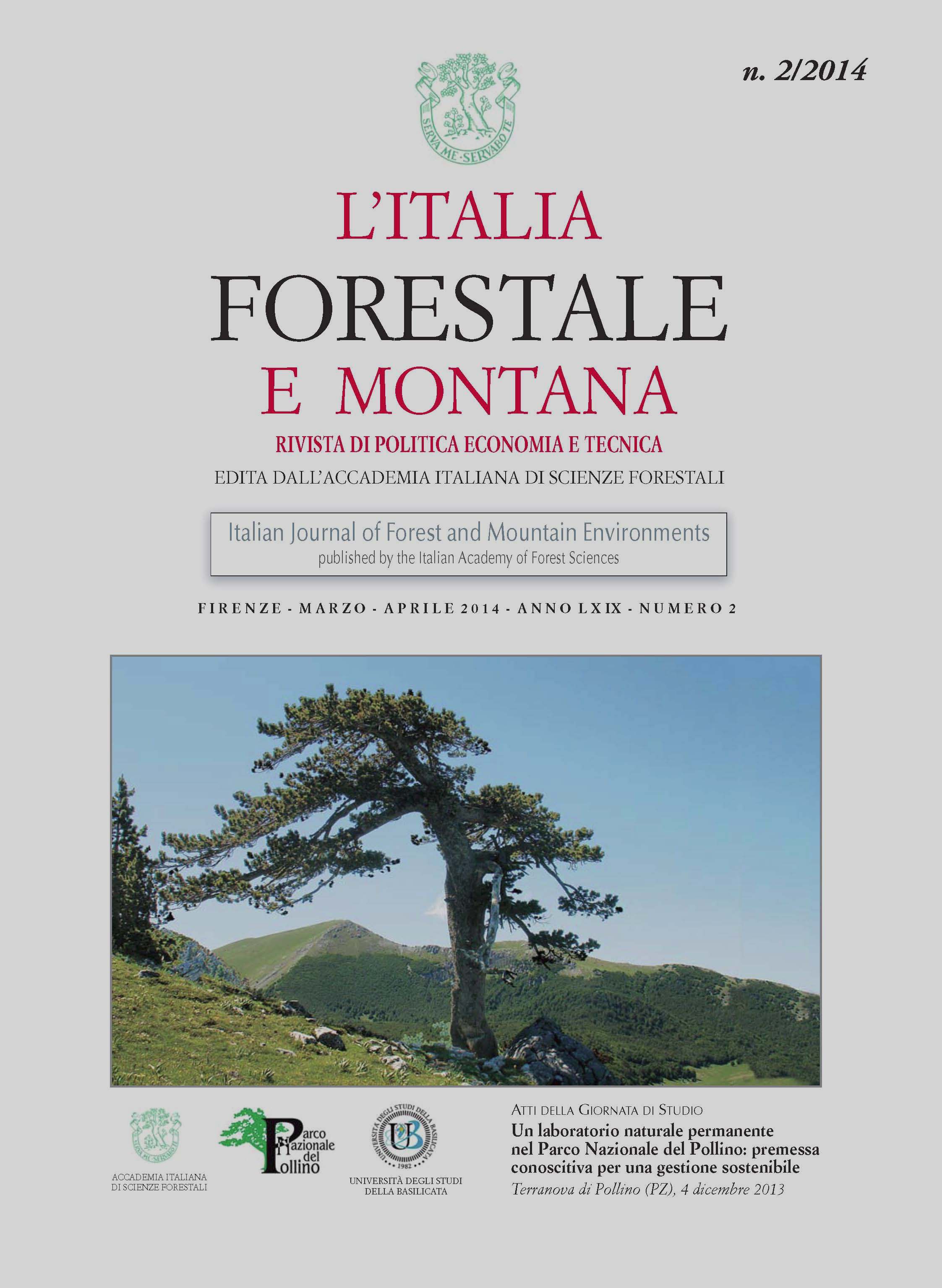Special section
Investigating adaptive genetic variation in forest trees: a genomic approach to define conservation strategies
Published 2014-05-21
Keywords
- global climatic change; gene flow; fragmentation; population genetics; migration; Pollino National Park; Pinus leucodermis; adaptive responses,
- forest trees
Copyright (c) 2014 Italian Journal of Forest and Mountain Environments

This work is licensed under a Creative Commons Attribution-NonCommercial 4.0 International License.
Abstract
The effects of climate change are easily recognizable in the Mediterranean region, one of the most important hotspots of plant biodiversity worldwide. Mediterranean forests are fragile ecosystems threatened by grazing, fires and intensive forest cuttings. Interacting with such disturbances, climate change is fuelling an everincreasing fragmentation process and the loss of ecosystem services.What can trees do to cope with climate change? The main strategies are to migrate, to adapt to new environmental conditions or to rely on phenotypic plasticity. However, it has been estimated that spread rates that allowed a successful escape from past glaciations are far below what would be necessary for species migration to track future climatic warming. In addition, notwithstanding large genetic variation and potentially fast adaptation, there is only anecdotal evidence that forest trees can genetically adapt to contemporary environmental change over a limitednumber of generations.In the near future, a deep knowledge of evolutionary processes involved in forest tree responses to climate change is required. This must rely on a sound multidisciplinary approach upon which effective strategies for the conservation of forest genetic resources should be based. Only through a joined multi-disciplinary effort, high quality data can be generated to understand the biological processes coming along with ongoing climate change and what is their relative relevance.In the present work, we outline a research project on adaptive responses of Pinus leucordermis. The project is based on the joined evaluation of genetic and
ecophysiological characteristics at the individual level from the fragmented populations present in the Pollino National Park. Results on the distribution of genotypic and phenotypic variation along ecological gradients will provide local managers with effective tools for maintaining invaluable forest genetic resources.

